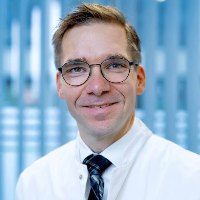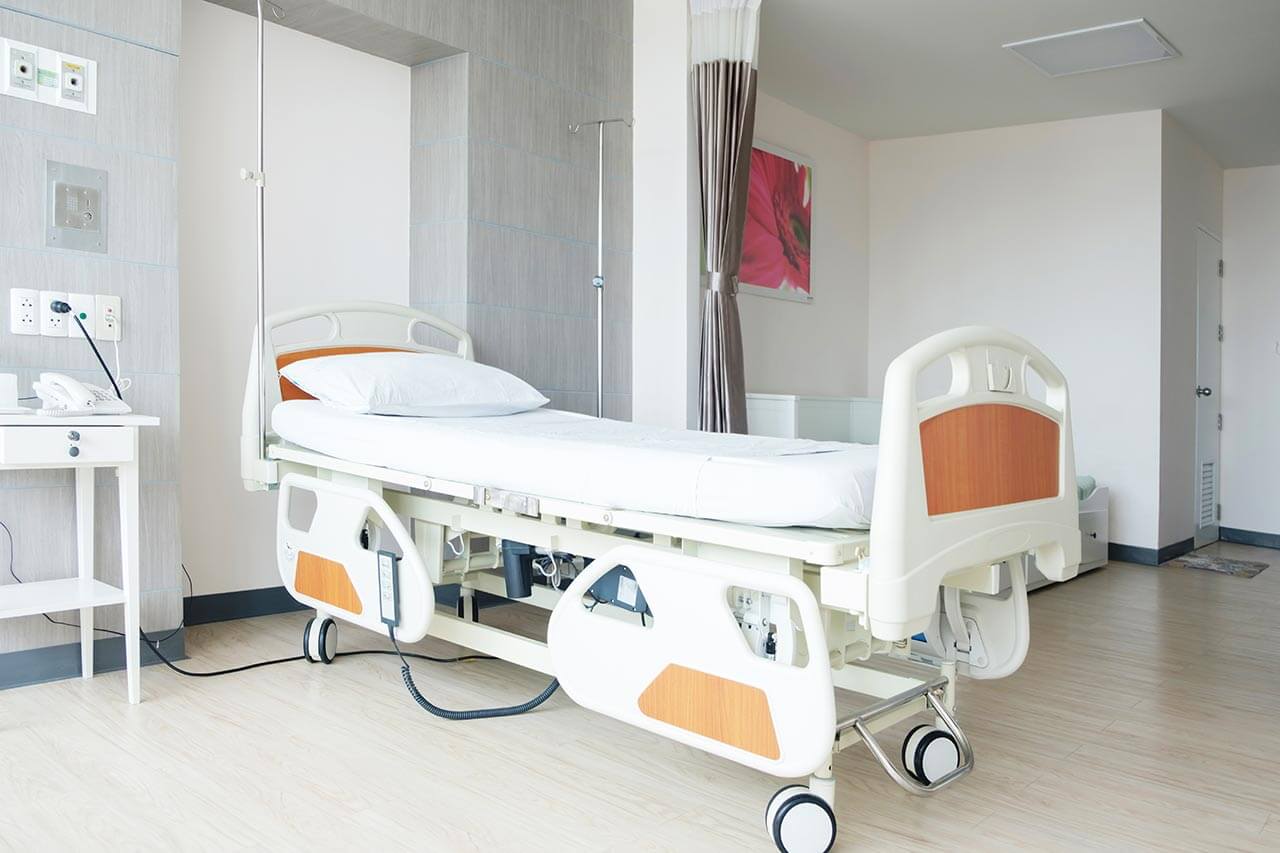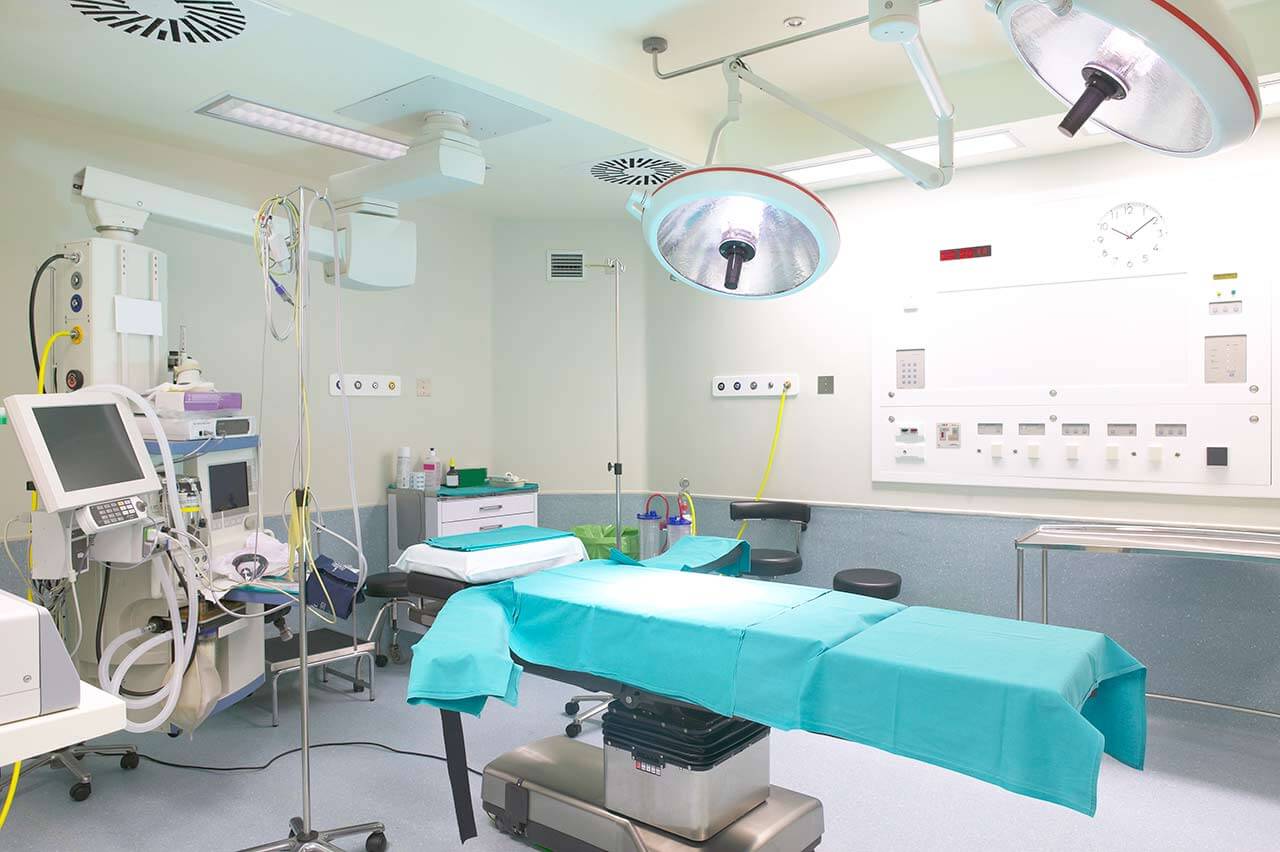
About the Department of Adult and Pediatric Otolaryngology, Head and Neck Surgery at Prosper Hospital Recklinghausen
The Department of Adult and Pediatric Otolaryngology, Head and Neck Surgery at the Prosper Hospital Recklinghausen offers the full range of medical services in the areas of its specialization. The key focus of clinical practice is on the treatment of diseases of the middle, inner, and outer ear. The medical facility has gained impressive experience in cochlear implantation, placement of middle ear acoustic implants, and bone conduction implants. The department's specialists are also responsible for otoplasty, which is a plastic surgery for ear reshaping. The medical team also treats patients with diseases of the nose, paranasal sinuses, oral cavity, throat, pharynx, and larynx. The department's doctors specialize in the surgical treatment of benign and malignant head and neck tumors, as well as reconstructive plastic surgery in the face and neck. More than 3,300 inpatients and about 9,000 outpatients undergo treatment in the medical facility annually. A specially trained team of physicians takes care of the health of young patients. The department is one of the largest and best centers for the treatment of ENT diseases in North Rhine-Westphalia. The health facility provides all conditions for effective treatment in a comfortable atmosphere. The Head Physician is Prof. Dr. med. Magnus Teschner.
The focus of attention of the department's otolaryngologists is patients with ear diseases and hearing impairments. Regular consultations are provided for patients with otitis, tinnitus, middle ear polyps, cholesteatoma, dizziness, and other pathologies. The treatment of otitis media (inflammatory processes in the middle ear) involves the prescription of drug therapy with nasal sprays, painkillers, and antibiotics. For patients with tinnitus, it is important to identify the cause of the condition and provide treatment with appropriate medications; in many cases, patients with tinnitus receive symptomatic therapy (antidepressants, tranquilizers, and sedatives). A cholesteatoma is a neoplasm in the ear that is usually a complication of a prolonged course of otitis media. If left untreated, cholesteatoma may lead to the destruction of auditory ossicles, hearing loss (up to deafness), facial nerve paralysis, and other severe complications. The only effective therapeutic method is surgical resection of the neoplasm. In cases of severe hearing impairment, the hearing ossicles can be additionally replaced with miniature titanium prostheses (tympanoplasty) during cholesteatoma removal surgery.
The department successfully performs cochlear implantation in adults and children. The placement of a cochlear implant is a high-tech method of hearing restoration for patients with severe hearing loss and total deafness when the use of classical external hearing aids does not allow the patient to achieve the desired result. A prerequisite for cochlear implantation is the preservation of the auditory nerve fibers, subcortical and cortical hearing centers, and the patency of the cochlear duct. During the procedure, an active electrode is inserted into the cochlea. It consists of a chain of individual electrodes that transmit encoded acoustic information through electrical stimulation of the preserved auditory nerve fibers. The implantable part of the cochlear implant system is not wired to the external part and does not contain any power elements. The surgical intervention is performed under general anesthesia, and its duration is about 2-3 hours. The operation is necessarily followed by auditory-verbal therapy, during which a person learns to perceive, differentiate, and recognize sounds, as well as to understand their meaning. Cochlear implantation surgery is commonly performed on young children.
The department's team of doctors also specializes in treating nasal and paranasal sinus disorders. The doctors mostly treat inflammatory processes in the paranasal sinuses and perform surgery to remove polyps in the nasal cavity, surgery to reshape the nasal septum (septoplasty), and nasal reshaping surgery (rhinoplasty). Minimally invasive and endoscopic techniques are used during interventions for nasal and paranasal sinus disease, which contributes to the patient's rapid recovery in the postoperative period and the achievement of the best aesthetic outcomes.
The department's range of services also includes the treatment of oral, pharyngeal, and laryngeal tumors. The specialists have all modern methods for this purpose, including laser and radiofrequency techniques, computer-assisted surgery, etc. The choice of treatment method depends on the tumor localization, its spread, and the results of a histological examination. Aesthetic aspects are also taken into account during the surgical planning phase. A speech therapist will also provide follow-up treatment after surgery to correct speech or swallowing, if required.
The department's main clinical activities include:
- Diagnostics and treatment of ear diseases
- Otitis media (middle ear inflammation)
- Tinnitus (noises in the ears)
- Middle ear polyps
- Acute and chronic dizziness
- Middle ear malformations
- Skull base tumors, injuries, and malformations
- Cholesteatoma
- Diagnostics and treatment of nasal and paranasal sinus diseases
- Chronic paranasal sinus inflammation
- Deviated septum
- Nasal polyps
- Lacrimal duct stenosis and obstruction
- Diagnostics and treatment of salivary gland, oral, pharyngeal, and laryngeal diseases
- Benign and malignant tumors
- Tonsillitis
- Diagnostics and treatment of traumatic facial and neck injuries
- Midfacial fractures
- Nasal fractures
- Skull base injuries
- Diagnostics and treatment of hearing impairments
- Diagnostics and treatment of functional dysphonia (voice dysfunction)
- Diagnostics and treatment of vocal cord paralysis
- Diagnostics and treatment of other diseases
The department's therapeutic options include:
- Drug therapy
- Surgical interventions
- Surgery for ear diseases and hearing impairments
- Ear polyp removal
- Cholesteatoma removal
- Congenital middle ear malformation repair
- Tympanoplasty
- Otoplasty
- Cochlear implantation
- Acoustic middle ear implant placement
- Bone conduction implant placement
- Surgery for nasal and paranasal sinus diseases
- Septoplasty
- Septorhinoplasty
- Nasal polyp removal
- Rhinoplasty
- Surgery for salivary gland, oral, pharyngeal, and laryngeal diseases
- Surgical removal of salivary gland tumors and stones
- Surgical removal of laryngeal tumors
- Chordectomy
- Tonsillectomy
- Adenoidectomy
- Oral, pharyngeal, and laryngeal plastic reconstructive surgery
- Skull base surgery
- Plastic reconstructive surgery for head and neck defects, burns, and malformations
- Rhinoplasty
- Otoplasty
- Blepharoplasty
- Facelift
- Scar revision
- Surgery for ear diseases and hearing impairments
- Other medical services
Curriculum vitae
Since July 1, 2022, Prof. Dr. med. Magnus Teschner has been the Head of the Department of Adult and Pediatric Otolaryngology, Head and Neck Surgery at the Prosper Hospital Recklinghausen. He is board certified in otolaryngology and has numerous additional qualifications, including plastic and aesthetic facial surgery, allergology, dietology, and emergency medical care. Prof. Magnus Teschner is a certified expert in performing digital volume tomography of the ENT organs and X-ray diagnostics of the skull and ENT organs. The doctor has the DEGUM II certificate from the German Society for Ultrasound in Medicine and holds the title of Master of Business Administration in Healthcare. In addition, the Professor is a Faculty Member at the Hannover Medical School.
Prof. Magnus Teschner is a highly qualified specialist in the field of his competence. He consistently demonstrates high success rates in the treatment of patients with complex ENT diseases.
Photo of the doctor: (c) Prosper-Hospital Recklinghausen




